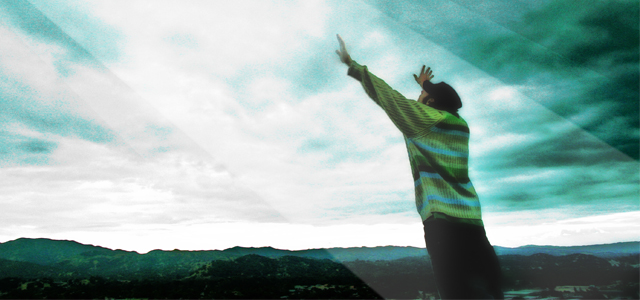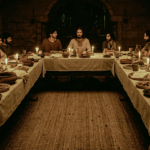2 July, Matthew 10:40-42
When we receive someone, we identify ourselves with them. This is a critical move — especially when we are identifying with a fringe-dweller or outsider. They are the most likely to be unseen and excluded, or worse. Standing with them (receiving them) makes them less easy to overlook and exclude.
Jesus hung with fringe-dwellers. He became the very symbol of an outsider — death on a cross outside the city. To stand with (receive) Jesus is to identify with a fringe-dweller and outsider.
Prophets, likewise, were on the social margins. They behaved in challenging ways and transgressed the established no-go zones of conversation. The reward for being a prophet was (frequently) social isolation and (possibly) death by stoning. Who wants a prophet’s reward?!
The reward for giving a humble person a cup of water is the privilege of participation in sustaining life for another human being. There is no greater reward. No one can take that reward from you — it is contained in the act of giving itself. It is one of the moments we are most like God.
Who do you receive and who do you identify with? How have you been rewarded in your efforts today?
9 July, Matthew 11:16-19, 25-30
Some people are never happy. It is as though their identity is formed around this fact. They define themselves by how everyone else is wrong, or not good enough, or not like them. Such people are not looking to make a contribution or find ways forward. They are secretly comfortable with the status quo and want to protect themselves from facing any further change/development.
Traditional intelligence and insight are built on the established patterns of the way the world works. Jesus ushered in something radically new in which customary wisdom and intelligence has little or no traction. Even so, our intrinsic humanity understands it. Children, who are unsophisticated and not caught up in their own clever ideas, can respond to Jesus’ ways. But adults too can let go of the burden of the constructed reality we carry around, and rediscover their essential humanity in caring for one another. We can know how to do this if we allow ourselves to follow Jesus.
How can you live your following of Jesus in a way that makes a constructive difference in your community today?
16 July, Matthew 13:1-9,18-23
Jesus’ explanation of the parable of the sower casts light on the variety of responses people make when they hear the good news. Good seed does not always produce fruit.
The parable encourages those sharing the gospel to be attentive regarding where they do their work. It is a waste of time, energy and resources to throw seed in unfruitful places.
The story is more confronting when we consider ourselves as the soil. How have we received the word and what kind of fruit is evident? The worry of the world and the deceitfulness of wealth appear to have the upper hand in many places.
How do you identify the various ‘soils’ when you are seeking to share good news with others? To what extent do you identify with the various soils in your own response to good news?
23 July, Matthew 13:24-30, 36-43
Jesus does not avoid the idea of judgment in his teaching. However, he consistently leaves it to God. Just as the workers in this parable seems keen to go uproot the weeds, we, like them, are often keen to be instruments of judgment and uprooting.
Judgment is a delicate and dangerous business. We are foolish to think we might be able to do it adequately. Good people invariably get hurt when we take on this task that is not ours.
When the time comes, all will be revealed. We shall see clearly as we shall be clearly seen. That’s enough to be concerning ourselves with.
How might your energy for uprooting weeds be more helpfully directed?
30 July, Matthew 13:31-33, 44-52
This series of short sayings about the kingdom of God indicates the disproportionate impact its reality has on the established order of things. The gospel seems small, insignificant even. Yet it will give rise to something very large that will impact everything and that has more value (though it be hidden) than anything you can see.
The impact of the coming kingdom is so great that even some who are not responsive to the central character and story will get caught up in its movement. Caught up with the movement or not… no one will be forced into the kingdom. No one who does not choose to be there will be coerced. Sadly, they will be free to miss out.
In what way does the radical change God’s kingdom represents, shape how you value the present order of things?
These Lectionary Reflections were prepared by Rev. Dave Gore, Minister at Ultimo Mustard Seed Uniting Church.












